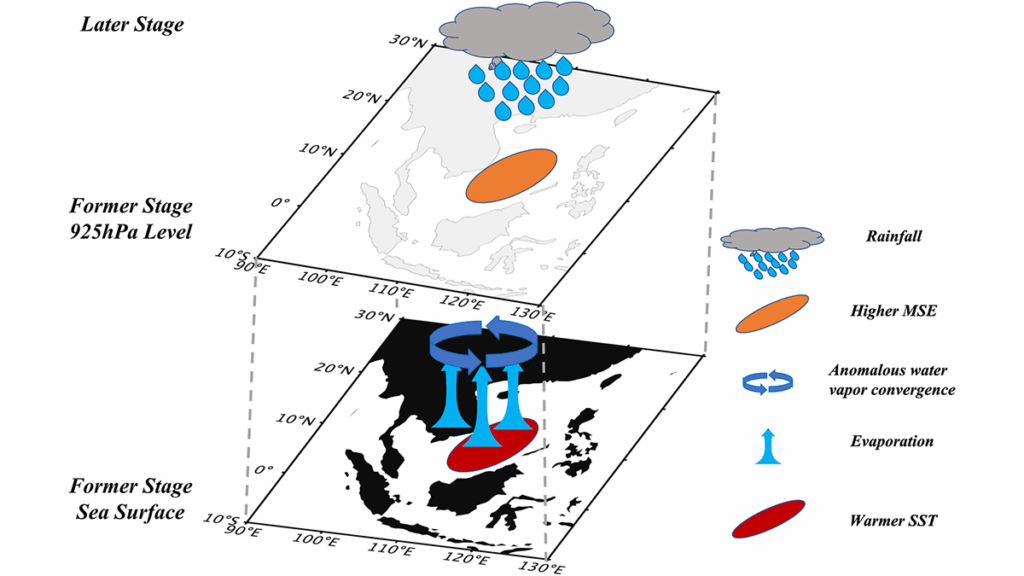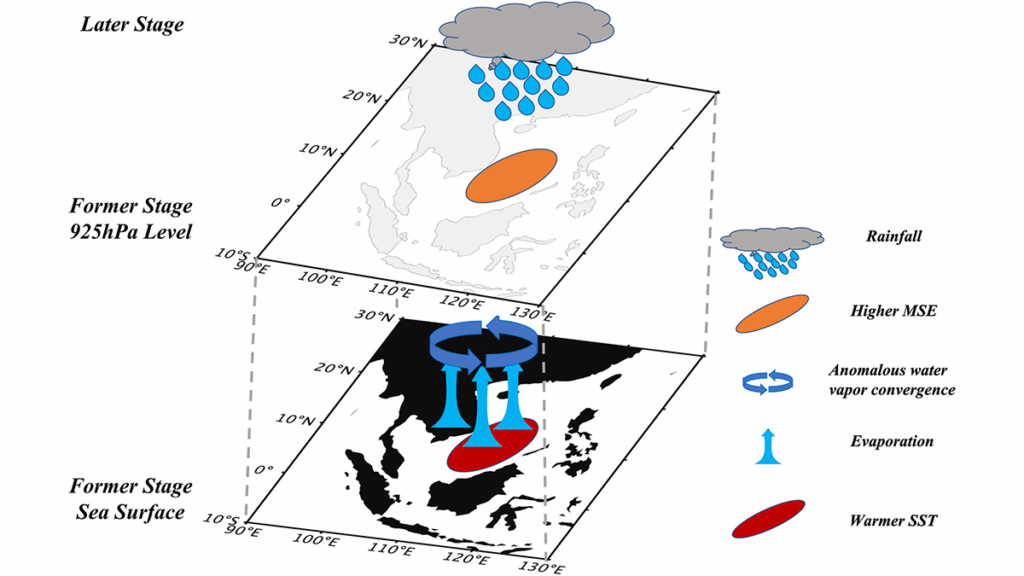

Editors’ Highlights are summaries of recent papers by AGU’s journal editors.
Source: Journal of Geophysical Research: Atmospheres
Marine heatwaves (MHWs)—prolonged periods of unusually warm ocean temperatures—are intensifying globally, disrupting marine ecosystems and biological processes. While their impacts on marine life are better documented, how MHWs influence precipitation has remained largely unexplored.
Zeng et al. [2025] investigate the relationship between MHWs and precipitation using two decades of high-resolution observational and reanalysis data (2002–2021). On average, MHWs shift global mean precipitation anomalies from −1.69 mm/day before peak intensity to +2.82 mm/day afterward. The study further identifies four distinct MHW types based on precipitation anomalies before and after the peak. The most common type (~46%) features reduced precipitation throughout its lifetime, followed by events (~26%) where precipitation transitions from negative to positive. In these latter cases, warmer early-stage oceans enhance evaporation and moisture convergence, increase moist static energy, and trigger stronger rainfall after the peak, which blocks solar radiation and accelerates MHW decay.
Understanding these dynamical processes is crucial for predicting future climate extremes in a warming world. This is among the first studies to identify precipitation–MHW relationships at different stages based on observations. These findings reveal dynamic air-sea feedbacks, showing that MHWs not only affect marine ecosystems but also modify regional precipitation patterns.
Citation: Zeng, S., Dong, L., Wu, L., Song, F., Zhang, Z., & Jing, Z. (2025). Distinct impacts of different marine heatwaves on precipitation. Journal of Geophysical Research: Atmospheres, 130, e2025JD044381. https://doi.org/10.1029/2025JD044381
—Yun Qian, Editor, JGR: Atmospheres
Text © 2025. The authors. CC BY-NC-ND 3.0
Except where otherwise noted, images are subject to copyright. Any reuse without express permission from the copyright owner is prohibited.


